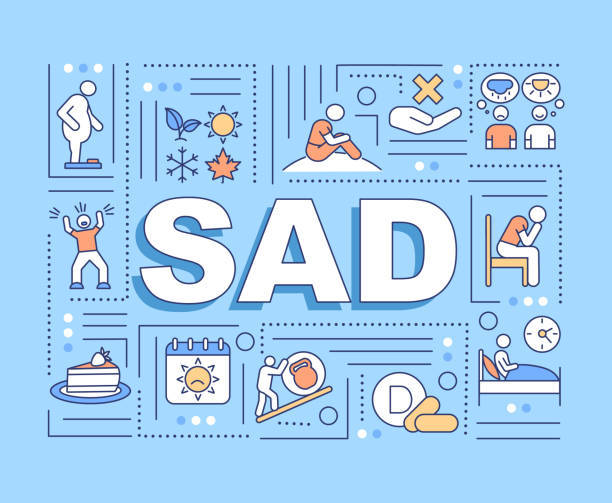By Irene Roth
If you struggle with seasonal depression, also known as Seasonal Affective Disorder (or SAD), you’re not alone. Up to 3% of the population suffers with this debilitating condition. The ratio is even higher among those who already struggle with depression or bipolar disorder.
For some of us, SAD could last right into spring. For others, we may have the effects of this condition right into the late spring and even summer. There are no time boundaries to SAD. It could happen to anyone at anytime.
The symptoms of SAD include feeling tired and excessively sleepy (even after a good night’s sleep), lack of motivation, thinking poorly of yourself, difficulty concentrating, craving carbs and sweets, experiencing weight gain, nibbling, over-drinking alcohol, and experiencing negative thoughts, just to name a few.
One of the main known causes of SAD is the change in daylight in October and especially November when our day light gets shorter. This decrease in sunlight can also disrupt our body’s internal clock and lead to feelings of depression. Our serotine levels drop as a result, too, affecting brain chemicals or neurotransmitters that affect mood.
Light therapy and anti-depressants can help with SAD to a certain degree. But there are a lot of other self-management modalities that we can engage in to feel better during this difficult time. Here are a few things to consider trying.
1. Exercise. When you’re feeling down, sometimes the most difficult thing to do is simply to get up and move. Yet exercise has been consistently shown as one of the most effective ways to address depression since when we exercise, we release feel-good endorphins, which are natural brain chemicals. These can enhance our sense of well-being.
You might not be able to immediately exercise 150 minutes a week. However, any exercise is better than none and it will help you feel better with SAD.
2. Watch what you eat. When it comes to health, and especially mental health, diet matters. Many people struggling with SAD find they crave certain foods, such as carbs and sweets. This will cause weight gain if it isn’t monitored. The problem is that when we eat too much sugar and many carbs, these bad habits can cause depression. Further, feeling depressed can further pull us into these sweet and salty foods. So, it can become a vicious cycle. Try to substitute white bread and potatoes for whole wheat and sweet potatoes. Replace high fructose deserts with fruit and Jell-O. These small tweaks can really help.
3. Create a consistent daily routine. Wake up and go to bed at the same time if you can. Eat your meals at regular intervals. Individuals with SAD feel that having a routine is a godsend. Decide how you will organize your life and then make sure that you follow through.
4. Engage in hobbies and activities. When people with SAD engage more in life and make time for fun, they feel better. That is so antithetical to feeling depressed when we do not feel like doing anything. Therefore, it is so important to do something, anything to help us feel better.
Hobbies, such as reading, cooking, crocheting, and needlecraft, for example, can be a great way to take our mind off our negative thoughts and feelings. Further, we can experience more bliss and peace, too. Engaging in hobbies can lift our spirits and soothe our anxiety.
5. Try not to drink stimulants, such as coffee or alcohol. These stimulants, though temporarily rejuvenating, produce unnatural highs and lows, which may aggravate symptoms associated with any depressive disorder. Instead, drink water and herbal tea.
6. Interact with supportive and upbeat people. Stay close to those close to you. A supportive presence can help you remain distracted from sadness and engaged in more productive activity.
7. Try to avoid triggers. There are some individuals with SAD who are negatively affected by watching the news or violent movies. Let’s face it, there is no good news. Therefore, avoid the evening news and gory movies, especially a few hours before bed.
8. Take up meditation. A strong mind-body connection has a therapeutic effect on relieving clinical depression. There isn’t just one way to meditate. All you need is a peaceful location where you can sit comfortably, relax, and focus on your breathing. Practising even five to ten minutes a day can help.
Start with whatever tip is easiest for you to implement. Try it for two to three weeks. Then add another one to your routine as time goes.
Regardless of whether you are working with a professional, implementing good habits of exercise, diet and engaging more in life, these can have a profoundly positive effect on your overall health and well-being.
Only you can decide if you need a professional. But I still urge all of you with mild SAD to try one or two of the tips above to ensure that they can overcome some of the immediate effects of this SAD.

